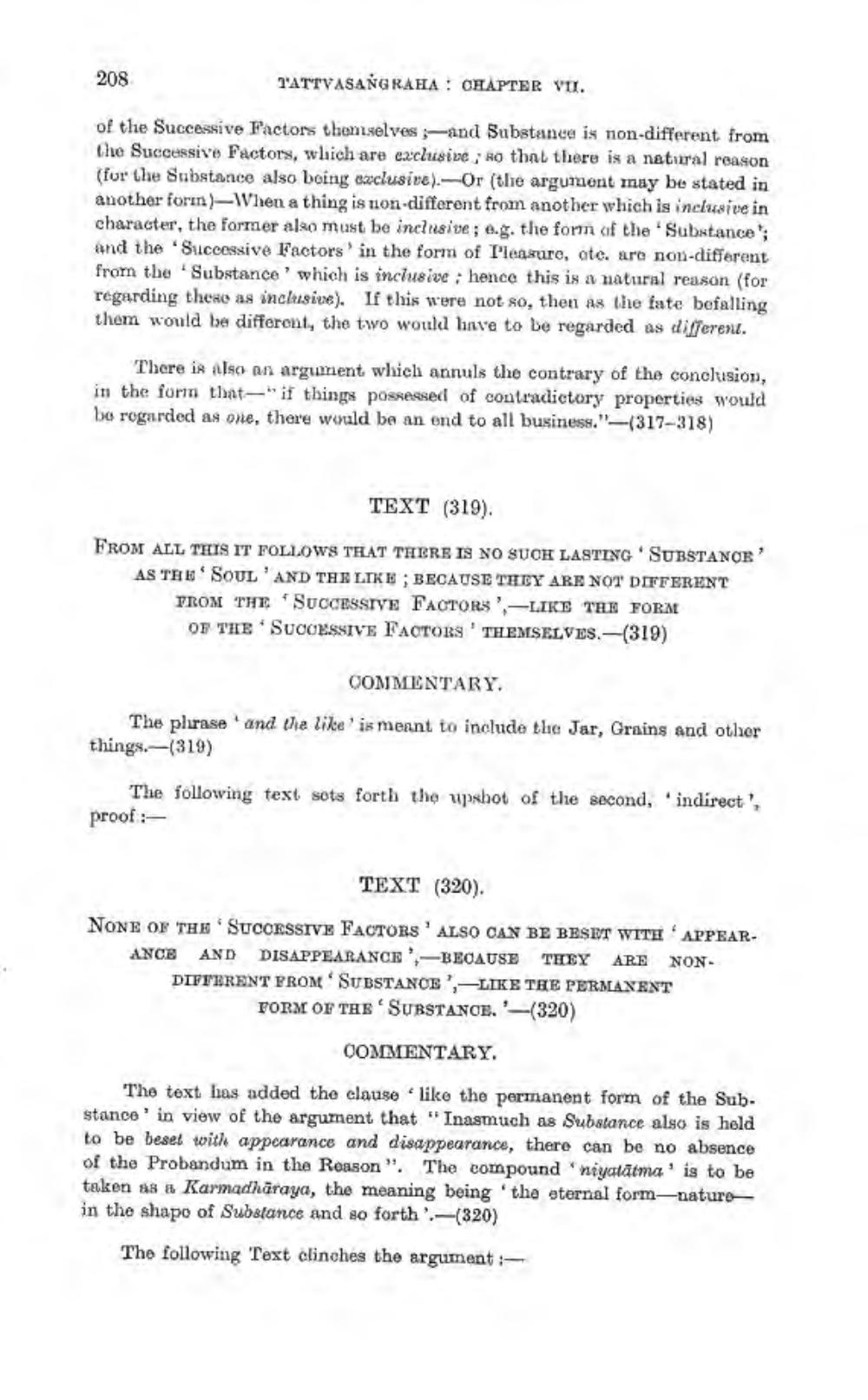________________
208
T'ATTVASANGRAHA: CHAPTER VII.
of the Successive Factors themselves and Substance is non-different from the Successive Factors, which are exclusive, so that there is a natural reason (for the Substance also being exclusive).-Or (the argument may be stated in another forin)-When a thing is non-different from another which is inclusive in character, the former also must be inclusive ; e.g. the form of the Substances and the Successive Factors in the form of Pleasure, ate. are nou-different from the Substance' which is inclusive; hence this is a natural reason (for regarding these as inclusive). If this were not so, then as the fate befalling them would be different, the two would have to be regarded as diferent.
There is also an argument which annuls the contrary of the conclusion, in the form that if things possessed of contradictory properties would bo rogarded as one, there would be an end to all business. "-(317-318)
TEXT (319)
FROM ALL THIS IT FOLLOWS THAT THERE IS NO SUCK LASTING 'SUBSTANCE' AS THE SOUL 'AND THE LIKE ; BECAUSE THEY ARE NOT DIFFERENT
FROM THE SUCCESSIVE FACTORS, -LIKE THE FORA OF THE SUCCESSIVE FACTORS THEMSELVES.-(319)
COMMENTARY
The phrase and the like' is meant to include the Jar, Grains and other things.-(319)
The following text sots forth the upshot of the second, 'indirect, proof
TEXT (320).
NONE OF THE SUCCESSIVE FACTORS 'ALSO CAN BE BESWT WITH' APPEARANCE AND DISAPPEARANCE',—BECAUSE THEY ARE NONDIFTRRENT FROM SUBSTANCE', -LIKE THE PERMANENT
FORM OF THE SUBSTANCE.'-(320)
COMMENTARY
The text has added the clause like the permanent form of the Sub. stance' in view of the argument that "Inasmuch as Substance also is held to be beset toith appearance and disappearance, there can be no absence of the Probandum in the Reason". The compound 'niyalātma' is to be taken as a Karmadhāraya, the meaning being the eternal form-nature in the shape of Substance and so forth':-(320)
The following Text clinches the argument:




